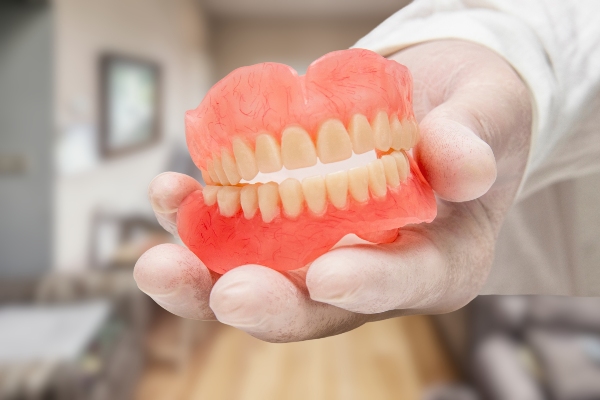What Is the Relationship Between Gum Disease and Diabetes?

Gum disease is one of the more common diseases in the world. The condition attacks the gums and bone supporting the teeth and is one of the leading causes of tooth loss in adults. Considering that mouth health is linked to overall wellbeing, there have been studies linking gum disease and diabetes. This article explores the relationship between the two conditions.
The relationship between gum disease and diabetes
People living with diabetes have a higher risk of developing gum disease. Inefficient management of blood sugar levels can create issues with the heart, blood vessels, nerves, kidneys, eyes, and feet. As well, the gums are not exempt.
Since high blood sugar levels can harm the blood vessels, it can also cut the supply of oxygen and nutrient to the gums, increasing the chances of infection in the gums and bones. Uncontrolled blood sugar levels can also increase the glucose level in the saliva, thus creating a breeding ground for bacteria, which are the primary cause of tooth decay and gum disease.
In turn, severe gum disease can adversely affect how the body controls blood sugar, and this may predispose the person to the risk of common long-term complications caused by diabetes. The inflammation of the gums resulting from gum infection is the body’s defense system fighting back, but it also affects blood sugar management. In simple words, gum disease and diabetes are linked in both directions.
Dental professionals typically recommend that patients inform them of a diabetes diagnosis and undergo comprehensive dental examination soon after. Patients living with diabetes should visit the dental office for regular dental checkups, especially for a review of their gum health. After a dentist discovers signs of gum disease, they can immediately initiate treatment and management procedures. Patients will require an intensive treatment plan and must visit the dentist more regularly than people who do not have gum disease and diabetes.
The cause of gum disease
A person’s genes can increase their risk of experiencing periodontal disease. Tobacco use, stress, and diabetes can contribute to this risk and worsen the condition.
Gum disease is mainly caused by dental plaque, which is a sticky film that forms on the teeth from the combination of bacteria, saliva, and food remnants. Plaque deposits should be cleaned off the teeth and gums regularly to prevent them from hardening in tartar or calculus. The bacteria in the plaque cause gum irritation, including symptoms like gum bleeding, redness, and swelling. Without proper treatment, the disease can worsen over time and damage the soft tissues and bone. Fortunately, gum disease is preventable and can be treated at the early stages.
Final note
Treating gum disease can be successful in people with diabetes with properly controlled blood sugar, just as with patients without diabetes. Proper blood sugar control increases the chances of successful gum disease treatment. Additionally, treating gum disease can lead to better sugar control in patients with poorly managed diabetes and reduce the risk of long-term complications. If you have been diagnosed with diabetes or noticed certain symptoms of gum disease, contact the dentist for treatment.
Request an appointment here: https://brimhalldentalgroup.com or call Brimhall Dental Group at (661) 249-1122 for an appointment in our Bakersfield office.
Check out what others are saying about our services on Yelp: Read our Yelp reviews.
Recent Posts
Dentures are a popular teeth replacement solution that can improve the function and appearance of your smile. They are designed to look like natural teeth and consist of different materials, such as acrylic and metal. Whether you are new to dentures or have been wearing them for years, it is important to properly care for…
When sudden dental pain occurs, an emergency dentist can provide critical relief and timely treatment. A toothache often appears unexpectedly, disrupting daily activities or restful sleep at night, signaling that you need urgent dental care. Understanding what steps to take when this type of pain occurs can help prevent further complications to your teeth and…
Dentures will give you the freedom to smile, speak, and eat well. These custom-fit restorations can provide comfort while wearing them. Knowing how these restorations can help your appearance, you can make informed decisions before your treatment. Here are the details on how dentures can enhance your smile.Dentures can replace missing teeth and can be…
Dentures are durable and effective teeth replacements. However, even the most reliable dental devices may start to fit differently over time. This may be caused by changes in the jaw or something as simple as everyday wear and tear. Fortunately, we can reline dentures so that they feel like new again.Relining is a process in…


